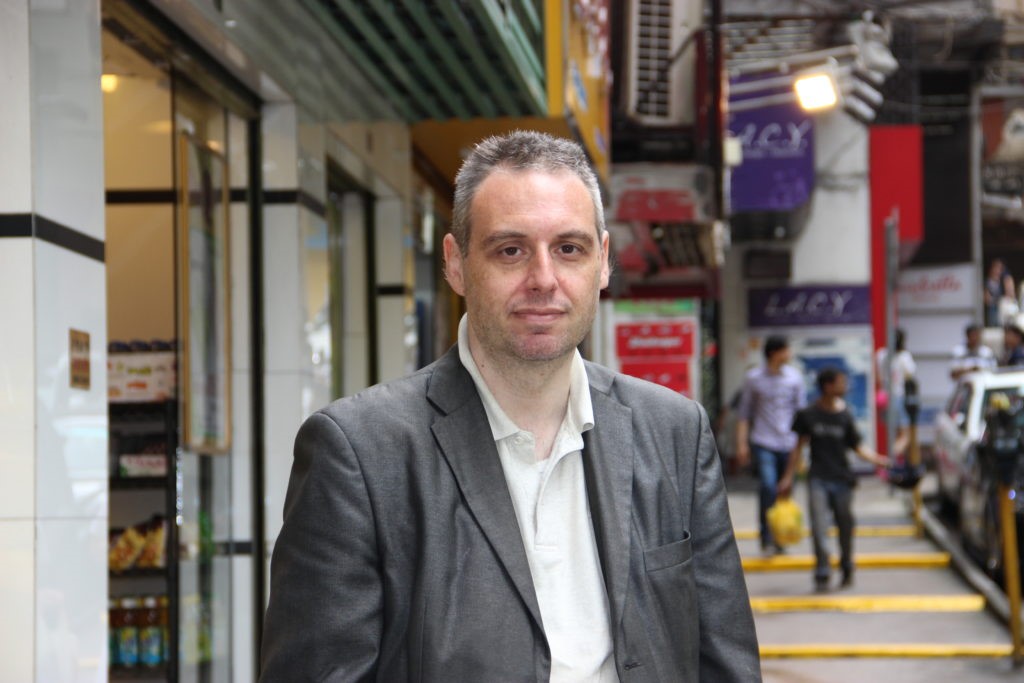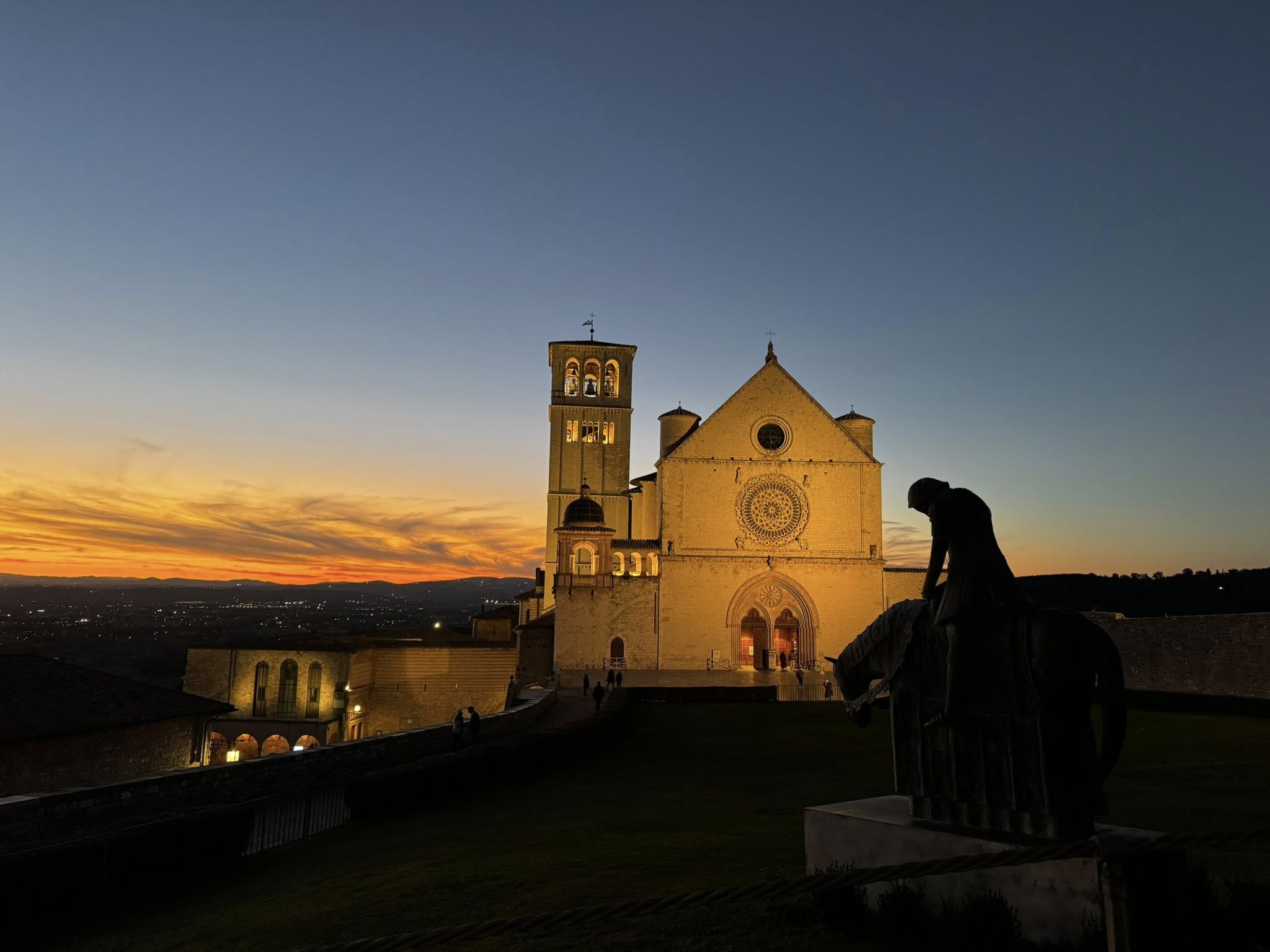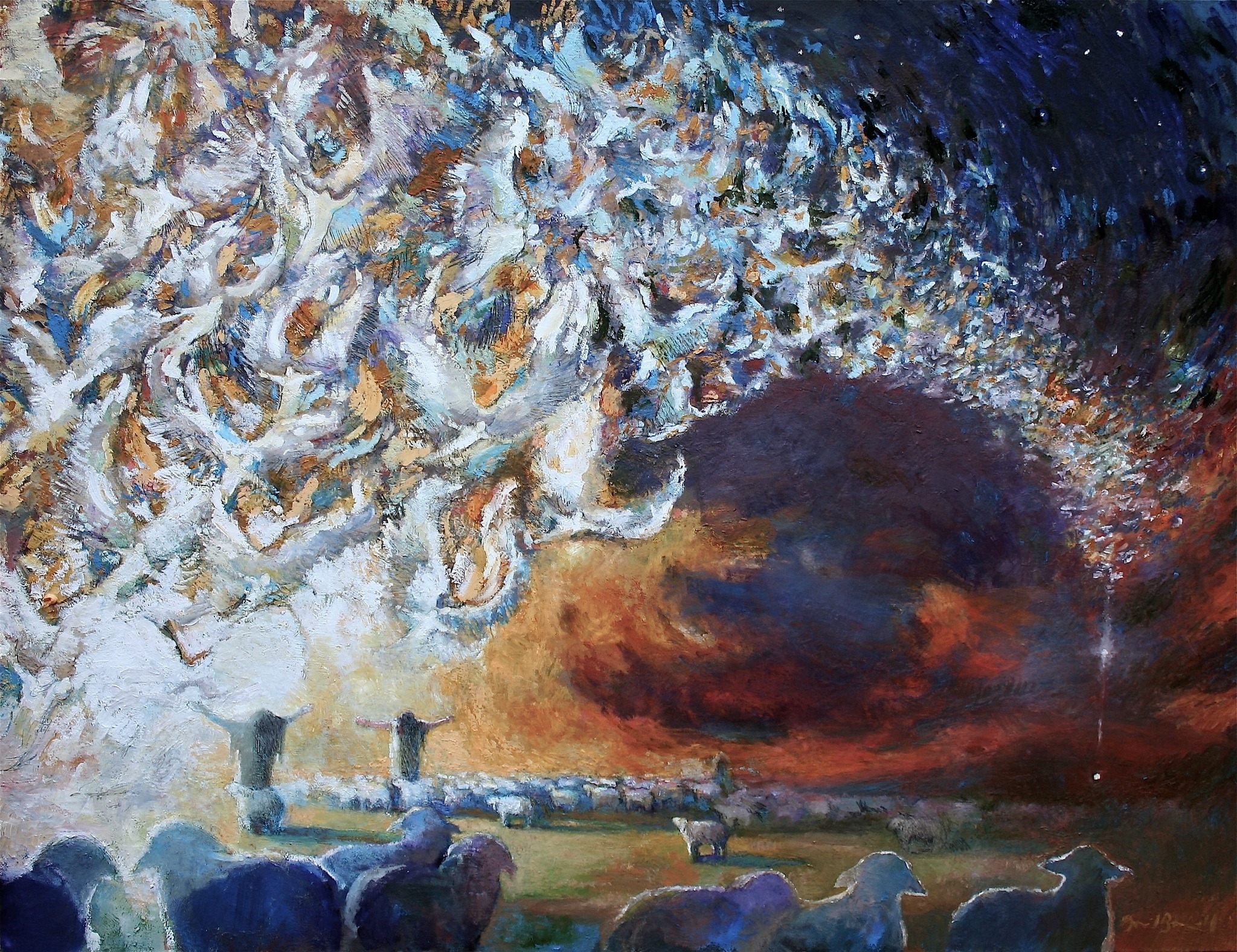– Marco Carvalho
A former teacher at the University of Saint Joseph, Italian composer Aurelio Porfiri is in neighboring Hong Kong to teach a series of lectures on the history of Catholic inspired music. The initiative takes place in the Chinese University of Hong Kong until the 2nd of February and it is aimed at all those interested in knowing more about the enormous musical tradition of the Catholic Church. A bountiful composer and a writer with a very prolific editorial activity, Aurelio Porfiri launched his most recent book last December. Co-authored with Italian Vaticanist Aldo Maria Valli, Sradicatti – Dialoghi Sulla Chiesa Liquida (Uprooted – Dialogues About the Liquid Church) delves into the main challenges the Church is facing nowadays. A book, Porfiri says, that speaks of the authors’ “sufferance for the struggles the Church is facing.”
You are a renowned composer, conductor and writer and your work is very well known in Macau. You are conducting until the beginning of February, in neighboring Hong Kong, a free course on the history and influence of Catholic Music. Whom is it aimed at?
It is aimed at all those people that want to know more about the huge musical tradition of the Catholic Church as seen in its historical development.
The contribution the Church gave to the evolution of music is often neglected. Is this aspect sufficiently acknowledged? And if not, what can be done to change this perspective?
The problem is that even amongst the Church leadership there is no awareness of this fact. Little can be done to change this perspective because unfortunately good and dignified music in the liturgy is a very low priority. And this is not from now.
What would you say was the biggest contribution the Church gave to the evolution of music?
The biggest contribution the Church gave? The Church is behind the development of the whole western musical tradition. There’s a very rich musical language coming from the tradition of sung liturgies.
You will tackle some important aspects on this course, namely the rise of secular music. How did the Church react to this phenomenon?
The Church reacted with many documents to contrast the possible influence of secular music in liturgies. Now it seems it has surrendered to this influence.
With the rise of secular music, we have witnessed another phenomenon, a sort of division within the universe of Catholic inspired music. Religious music is being played not only inside temples and churches, but also outside them. Some of the best existing choirs are connected to the Church, but we saw the rise of some other less sacred representations of Catholic music. The latest example of this is the Peruvian group “Siervas”, which played last Wednesday at the World Youth Day. This sort of evolution, the one that caters to popular taste … Was it inevitable?
I don’t know the group you mentioned. The Church has always tried to resist certain external forces and ideas, because of the danger that these forces and ideas may corrupt the purity of her doctrine, the purity of her worship. In relation to music, as I have said, it seems that the Church has surrendered this function. Today commercial music is well into the liturgies in many parts of the world. A real tragedy.
Is the Church still an influential force in the evolution of music nowadays? Or has this role been lost?
That role has certainly been lost. Now the Church runs in ways according to the fashions of the world.
Music has always had a central role on the liturgical aspect of the Eucharist. You are a quite prolific composer. How hard is it to create for something so specific and powerful as a Mass? What are your main concerns when you create a new opus?
It is hard, for the simple reason that you need to make sure that the music is firstly and foremost for people’s prayers. So you need to pray first.
This musical dimension of the message of the Church seems to be very well received by the Chinese faithful. Both Macau and Hong Kong have an incredibly vast number of choirs and groups of the kind. How can we explain this dimension?
Great Catholic music is not Western first and then Catholic. It is Catholic first. It has a universal dimension of deep religiosity and Chinese people can be deeply religious.
You have released a new book, written in cooperation with Aldo Maria Valli. Its title – “Sradicati – Dialoghi Sulla Chiesa Liquida” (Uprooted – Dialogues about the Liquid Church) – is quite suggestive. What is “Sradicati” all about?
Aldo Maria Valli is one of Italy’s most famous Vaticanists. The Church nowadays is strongly divided; sometimes it seems that is going in directions that we think may be dangerous for the Church herself. As Catholics, we speak of our sufferance for the struggles the Church is facing.
Is the Church already open enough to discuss some of the challenges that it faces? In your opinion, what is the biggest of those challenges?
The biggest challenge, in my opinion, it is not to lose her own identity, being Catholic and not running after the things of the world. This is a temptation that exists from the very beginning.
The approach between the Holy See and Beijing … Is it something that the Church and the Catholics should be proud of?
The Catholics should be proud that the Church is trying to establish relationships with everyone, for the good of Catholics faithful in those given countries. It can be legitimately questioned if concrete decisions and agreements always conform with the good of the said faithful, as in this case. The Pope and the Secretary of State recognised that for some faithful, it will be difficult to accept an agreement in the present conditions.
You are very active, both writing and composing. What can we expect from Aurelio Porfiri in the next few months?
Hopefully – and with the help of God – to be still alive.


 Follow
Follow

